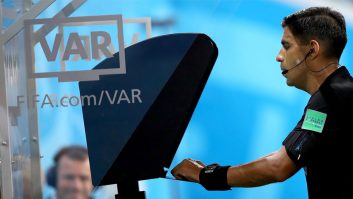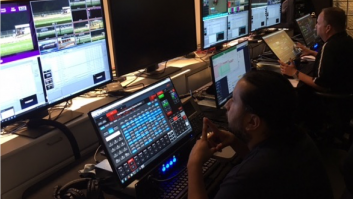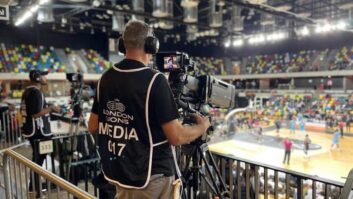One hundred years since the French capital last hosted the Olympic Games, it would be erring on the side of understatement to say that there is considerable anticipation for Paris 2024. This sense of excitement is not lost on Scott Young, SVP content and production at Warner Bros. Discovery (WBD) Sports Europe, as he contemplates the first Olympics to occur since the merger of WarnerMedia and Discovery was completed in April 2022.
“The Olympics is an extraordinary event that will unite over 10,500 athletes in a European backyard. For us, [Paris 2024 sees the Olympics] coming home into a time zone and a territory that are very much that of Eurosport,” Young says, alluding to the WBD-owned sports network that is available in most of its territories.
The occasion prompting Young’s conversation with TVEurope is itself something of a milestone. Taking place 12 months before the next Summer Games begin on July 26, 2024, the interview coincides with the start of WBD’s Road to Paris promotional campaign.
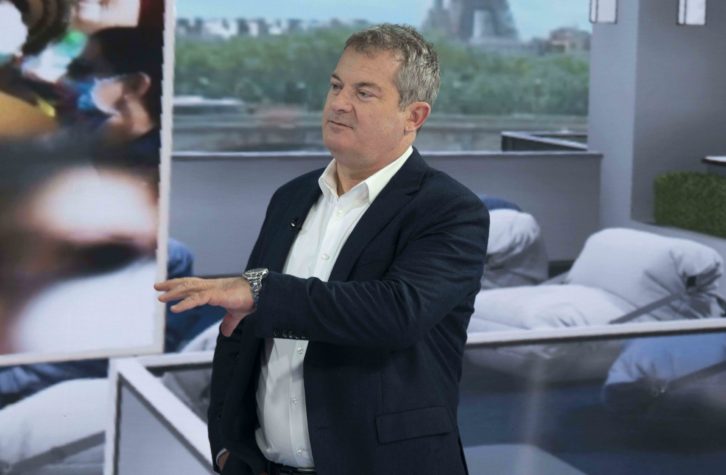
But whilst WBD’s public activity around Paris 2024 is now ramping-up, behind-the-scenes preparations have been in progress since 2021, when the most recent, Covid-delayed Summer Games took place. “For us, the planning commenced during the Tokyo Olympics when we sat down with our Olympic Hub team – which is the reference we use for the central organisational team that puts the Olympics together from within our business – and started to look at the venue map of Paris and began to understand the role we needed to play in bringing the Olympics to life in Paris” – where Eurosport is based in the southwestern suburb of Issy-les-Moulineaux.
With a requirement to have its operational plans “locked and loaded” by this September, WBD will then focus on “fine-tuning the editorial narrative” – delivery of which, it is clear, will depend on detailed storytelling as well as multiple cutting-edge technologies.
Relevance to local audiences
As in previous Games, the overriding objective for national and regional broadcasters is to augment and localise the neutral competition coverage produced by Olympics-affiliated host broadcaster OBS (Olympic Broadcasting Services). So it’s vital, says Young, that “we make the Olympics very relevant to local audiences, and because we have so many markets simultaneously broadcasting in different languages, we need a very different technical and production solution than would be required for a single destination and language.”
Collaboration with the host broadcaster helps to steer the development of regional coverage. “We work very closely with OBS on how we can further tell the story of the athletes,” reveals Young. “We get spectacular competition coverage [from them], so our real innovation resides in how we can communicate the athletes’ journeys, competitions and, hopefully, the success of their medals.”
With WBD Sports Europe collectively reaching 130 million people every month, located in more than 200 markets and over 20 languages, this is no small feat. So it must be beneficial that the broadcaster has 10 production hubs across Europe to draw upon, with each facility incorporating a gallery and PCR from which the daily regional output will be masterminded.
“Instead of setting up numerous control rooms in the IBC or the head offices [of Eurosport], we will be relying on hubs including London – which is another joint robust production base for us in addition to Paris – Oslo and Munich,” confirms Young. “Those hubs are where [our coverage] will be distributed and hosted from, and it’s not just remote production but backups – and backups of backups, too.”
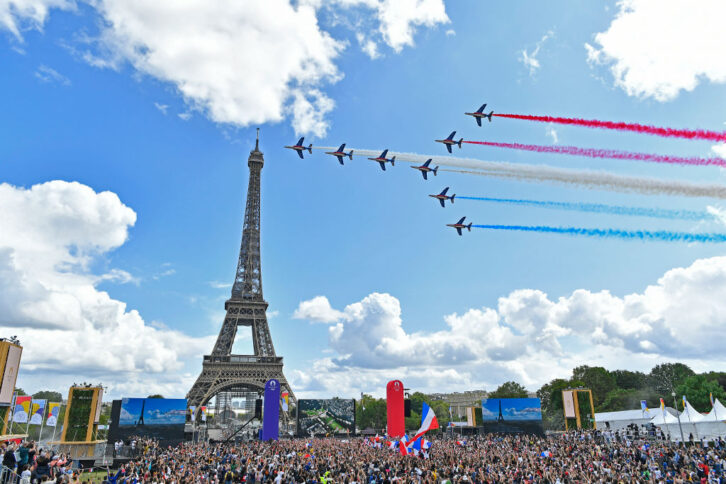
Decentralised and remote production will also assist WBD in limiting the carbon impact of its operation, both in terms of reducing the need to transport technology (“that’s where the heaviest lifting is”) and people: “We are very lucky that Eurosport has its head offices in Paris, with a large number of staff and freelancers living and working here. So it does mean that we don’t have to rely on a large amount of accommodation and travel.”
It should also be noted that Paris 2024 is not wholly focused on the French capital either. Young says: “While most venues are based there, [the Games] will also use venues across France, including football and sailing in Marseille and surfing in Tahiti.” All of which spells a “need to rely on every form of connectivity at our disposal – which means being able to use RF and 5G in addition to the numerous other ways of moving signals around, including fibre optic – the most robust.”
Immersive and curated
Young touches briefly on several other primary production topics. Whilst part of the Games will be delivered in 4K for those who wish to “sit back and enjoy the very best [the Olympics] has to offer,” WBD will also be channelling its energies into “a very immersive and curated experience across streaming and app platforms where viewers can watch every sport from start to finish. At the height of [Tokyo 2020] we had 56 individual sports on-air at the same time, and we will go above and beyond that in Paris.” Managing the expected volumes means that “4K is not a use case” for that aspect of the production.
With the prominence of the debate around AI right now, it’s impossible not to ask if automation figures highly in WBD’s plans. “Not for these Games,” he responds. “The beauty of sport is that connection people have who passionately follow a team or athlete. [To reflect that] you need commentators, presenters and pundits who also have a visceral connection with the competition and can help ‘unpack the why’. At the moment that still very much needs to be done without the aid of too much automation.” Hence for this event automated solutions will be directed towards “brief edits and short clip highlights, as we are seeing better automation there, and delivery of statistical data to the different commentary teams.”
With a Parisian backdrop that will provide a centrepiece for WBD’s coverage due to be unveiled soon, Young’s enthusiasm for the Games is palpable. “OBS is envisaging this as an innovative Games – and that very much starts with the Opening Ceremony,” which for the first time in Olympics history will not take place in a stadium. Instead, he notes, “thousands of athletes will parade in boats on a 6km route along the River Seine, leading to the Trocadéro and the launch of the Games. It’s going to be spectacular.”
